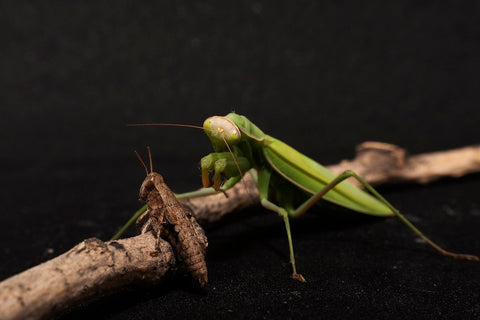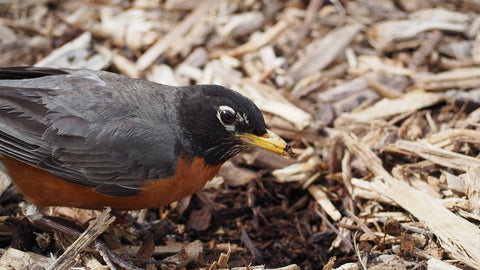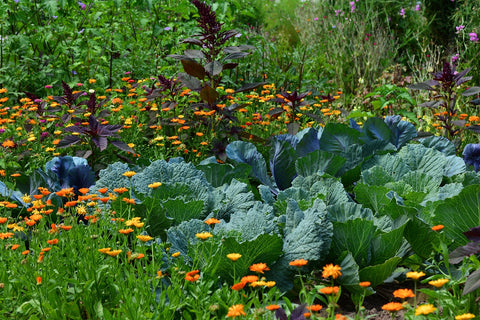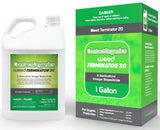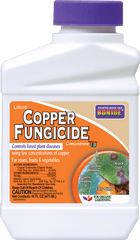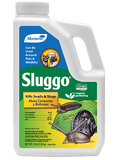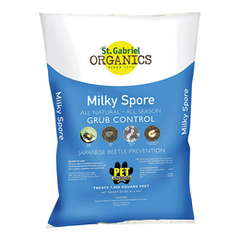Photo: Red aphids on a daisy
Take a proactive approach to sustainably controlling pests in your garden using Integrated Pest Management (IPM) strategies:
Integrated Pest Management is a holistic approach that combines various strategies to minimize the impact of pests on plants. Instead of resorting to indiscriminate pesticide use, IPM focuses on prevention, monitoring, and intervention. It seeks to strike a balance between minimizing pest populations and preserving beneficial insects and plants, ensuring long-term ecological stability. IPM practices often use a 30% approach. If more than 30% of your garden or lawn is affected by a pest issue (weeds, insects or diseases) consider treating with conventional chemical control. If less than 30% is affected, consider using biological controls and allow weather and beneficial insects or conditions to support the plant to recover naturally.
-
Mulch to Suppress Weeds: Apply a layer of organic mulch around your plants and beds. Mulch suppresses weeds by blocking sunlight which prevents seeds from germinating, retaining moisture in soil which reduces the need for watering.
-
Cultivation: For small areas consider hand-pulling as a primary weed control method. Ensure that you remove the entire plant, including the roots, to prevent regrowth. Use a gardening tool like a hoe or cultivator to loosen and remove weeds from larger areas, being careful not to disturb the soil excessively.
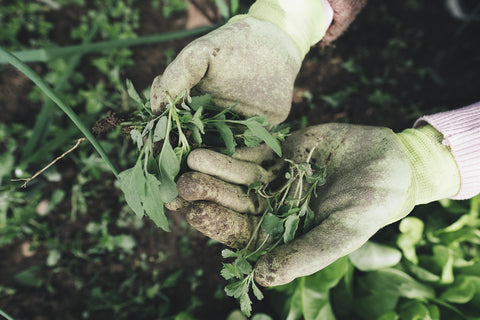
-
Natural Weed Control: There are also commercial solutions available that are a more natural approach to harsh chemicals that affect beneficial insects or plants or try vinegar and salt solutions as natural alternatives to chemical herbicides. If using vinegar and salt, control is short-term and would need frequent applications. Additionally, all plants will be affected by the solution.
-
Companion Planting: Embrace the concept of companion planting to naturally deter harmful pests and minimize insect infestations. For example, planting marigolds, nasturtiums, or lavender alongside your vegetables and flowers can help repel pests like aphids, nematodes, and mosquitoes. Research suitable companion plants for the specific pests you want to target or the beneficial ones you want to attract.
-
Biological Pest Control: Attract beneficial insects and organisms to your garden to combat pests. Ladybugs, lacewings, and praying mantises are natural predators that feed on aphids and other garden pests. Encouraging birds, bats, and frogs to visit your garden can also help control insect populations. Solutions may include bird baths and feeders to attract natural pest control visitors.
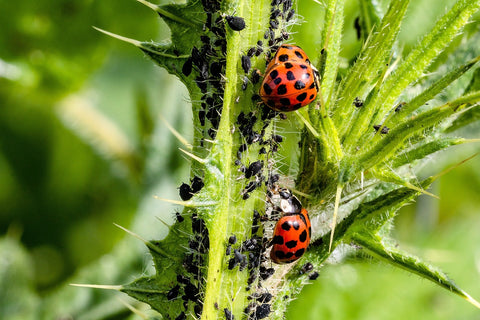
-
Organic Pest Sprays: Neem oil, derived from the neem tree, is another effective natural pesticide that works against a wide range of garden pests. There are other organic or natural products to control pests that may be more eco-friendly than reaching for chemicals leaving a more toxic impact.
-
Prevention: Regularly inspect your plants and garden for signs of pests or disease. Promptly remove any damaged or diseased plant parts to prevent the spread of pathogens. Proper garden maintenance, including watering, fertilizing, and pruning, can strengthen plants, making them more resilient to pests and diseases. For example, when watering, water only the root zone instead of the entire plant to reduce fungal diseases and wasted water.
By adopting these eco-friendly approaches to weed and insect control, you can maintain a healthy and thriving garden while minimizing the use of harmful chemicals. Embrace the beauty of the fall season while ensuring a sustainable and environmentally responsible approach to pest management in your garden.
